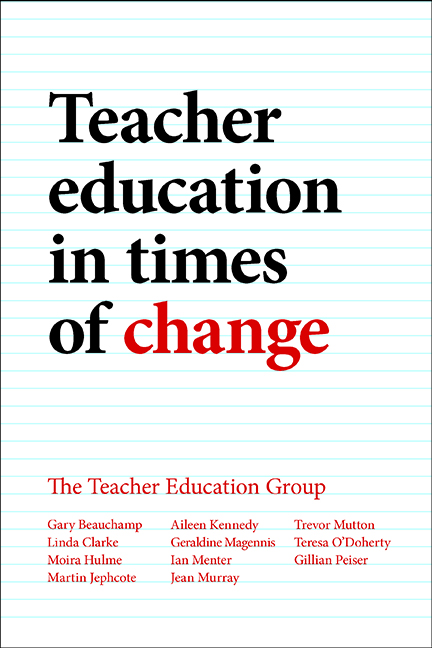Book contents
eleven - Teacher education and higher education
Published online by Cambridge University Press: 23 August 2022
Summary
Introduction
In 1984, Alexander et al (1984, p xv) famously conceptualised pre-service or initial teacher education (ITE) as ‘suspended between the worlds of school and higher education (HE)’: ‘One provides its raison d’etre and the occupational imperatives to which it is bound to respond, and the other the framework within which such responses must be located, and which has its own cultural and academic imperatives.’
Taylor (1983) conceptualised teacher education as ‘Janus-faced’, another dualistic conceptualisation, offering an even starker sense of difference and opposition between the two ‘faces’ of ITE – one looking towards the school and the other looking, in opposition, to the university.
Underlying this dualism around the two sites of learning in ITE is, of course, another dualism of theory/practice as separate and distinctive, primarily generated in and ‘belonging to’ only one location: theory as the knowledge domain of the university and practice as the domain of schools. As these authors from the 1980s pointed out, these constructions of dualism in the field of ITE were not new; they had characterised teacher education in England since its first establishment in the HE sector over a century previously (Dent, 1977); and in 1984, these dualisms clearly still had considerable validity and power as ways of conceptualising ITE and the contestations it then involved.
At the time of writing, in some ways both of these dualisms continue to be influential elements in the ‘public discourses’ of ITE (Popekwitz, 1987). They still, all too often, bring with them a sense of the two locations and the two types of knowledge traditionally associated with them as separate and distinctive domains, even though both schools and universities are, of course, involved in the common enterprise of educating high-quality teachers. This chapter argues that in some key ways these dualisms have been unhelpful continuities in ITE since 1984, and that they are also increasingly inaccurate and inappropriate for conceptualising the field. This is not least because they overlook significant changes in the knowledge domains of ITE and the often more integrated ways in which knowledge is generated in and across each location.
- Type
- Chapter
- Information
- Teacher Education in Times of ChangeResponding to challenges across the UK and Ireland, pp. 179 - 200Publisher: Bristol University PressPrint publication year: 2015
- 1
- Cited by

